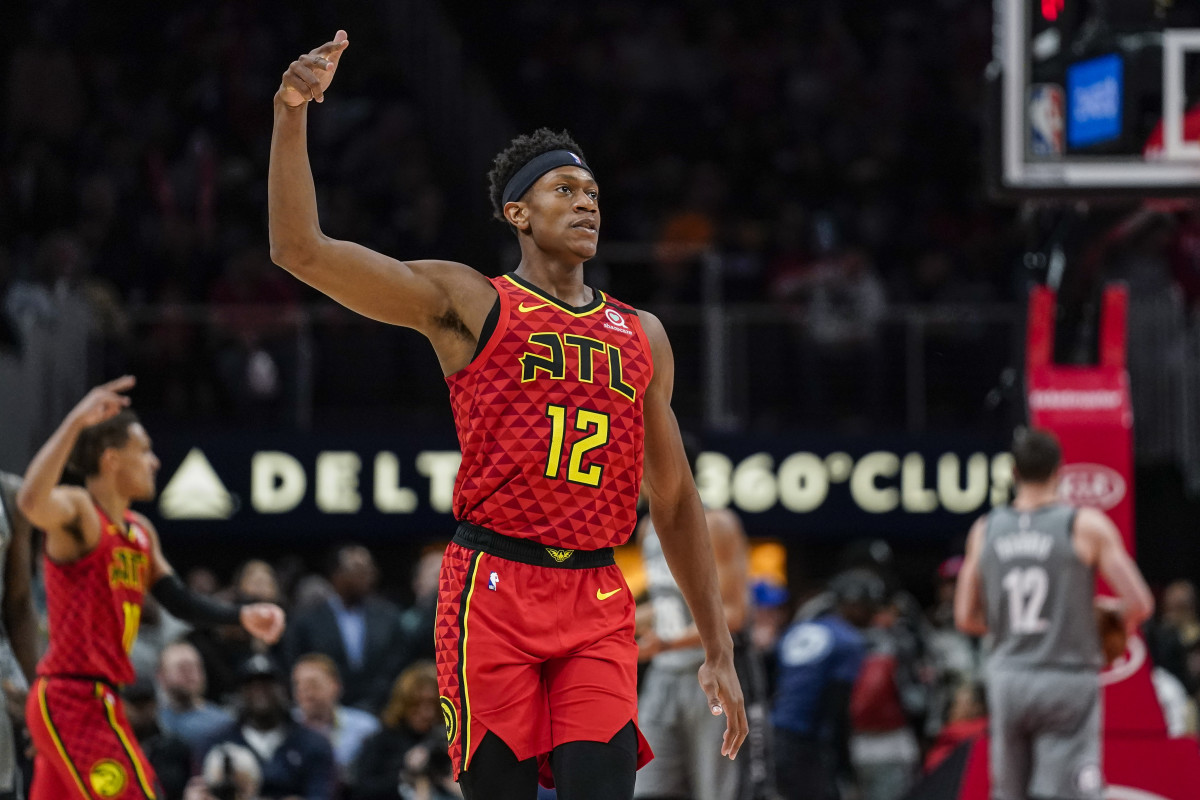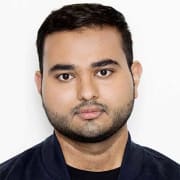De'Andre Hunter Details Growing Up and His Journey to the NBA
Hawks rookie De’Andre Hunter did not believe the NBA season was actually suspended when he first heard about it. It happened while play was stopped during Atlanta’s last game, against the Knicks, and Hunter had some doubts about his source.
“It was our ball, I think it was an out-of-bounds, and Cam Reddish came over to me and said, ‘Yeah bro, season over.’ I was like, ‘What you talking about?,’” Hunter told Sports Illustrated over the phone. “I didn’t believe him at the time because Cam always be playing and stuff.”
But Hunter went back to the bench and confirmed the truth from the rest of his teammates, meaning his rookie season would be cut short—for now.
Hunter’s journey has never been a cookie-cutter one, and that’s outlined in a new docuseries, Brotherhood the Virginia product and his brother made about De’Andre’s path to the NBA. Produced by Wasserman’s content division Athlete Exchange, the three-episode series follows Hunter from his childhood in North Philadelphia (where he lost his father when he was only 8 years old) to the night he was drafted by the Hawks.
“It’s always nice to give people a glimpse into how an NBA player lives, their daily life,” Hunter said. “I remember when I was in high school, I used to watch NBA players’ documentaries all the time. I played basketball and I thought that was the coolest thing. So I know that for someone who maybe doesn’t play and is just a big fan of the game, they see us on the court and wonder what we do. I always thought that was cool.”
The entire docuseries is currently available on the new PlayersTV. The first two episodes have been released on Hunter’s Instagram and the final installment will be arriving Monday. SI caught up with Hunter to describe the project, his rookie season and more.
Rohan Nadkarni: You said in the documentary your brother and you almost had a father-son type relationship. What did you learn from him growing up? And what’s that relationship like now?
De’Andre Hunter: I learned how to be a man. My father passed away but he stepped up, took command of the household, took care of me, so things like that.
I’m older now so it’s more of a brother-brother thing. Definitely when I was younger, he was the father figure in the house, someone I looked up to, someone who gave me advice. Just teach me from his experiences and stuff like that. We’re still really close, of course. I was just talking to him before this call. We still talk every day.
RN: Is your brother still critiquing you about your game all the time? The documentary shows you guys are competitive. When was the last time he beat you in one-on-one?
DH: After every game, he usually texts me something about how I played. We’re still competitive. We still play games of 2K and things like that. We still get after it. The advice is definitely not like it used to be. When I was younger, after some games he used to really let me have it.
And he probably still thinks he could beat me, but he has no chance. Last time he beat me in one-on-one I think I was in eighth grade.
RN: You describe North Philly as a tough neighborhood. Who were the people that helped you stay focused on basketball?
DH: My family. I used to play with my sister outside all the time. My brother was there as well. We all used to hang out outside all the time. As a kid, you don’t really get the full effect of a neighborhood. Or you don’t really see how violent or bad it is. It was a great place for me.
RN: What’s the story you want to tell with this documentary?
DH: Definitely just give a little insight to the process that was going on before the draft. Definitely want to show the relationship with my brother. And that’s basically it. With a little insight, I think you’ll see a different side of me that you probably wouldn’t really be able to see outside of the documentary.
RN: How has your first NBA season matched up with your expectations? Has it been harder than you thought it would be?
DH: It’s definitely very tiring. That’s something that I overlooked. The working part of it, the practice, the traveling, that’s stuff I didn’t always take into account. That’s something I had to learn. I knew coming into the season it was going to be a lot of ups and downs, but I didn’t take into account everything that goes into just one season.
RN: How have you been passing the time during the season suspension?
DH: I was going to the gym in my apartment complex, but once they closed that I stopped going. I’m mostly staying in my apartment, playing video games, watching movies. I’m playing a lot of video games. A lot of Call of Duty: Modern Warfare.
RN: You mentioned watching other players’ documentaries growing up. Who were some of the guys you looked up to?
DH: My favorite player was Carmelo Anthony. I used to watch his highlights all the time. He had little documentaries and things like that. I used to be in the basement of my house, putting on video after video of him.
RN: When you played against Carmelo, did you tell him he was your favorite player?
DH: I mean, I wanted to tell him, but I just didn’t. I was guarding him for the whole game, so I probably should’ve said something. Next year or whatever happens, hopefully next time we play each other, I’ll be able to say something to him.

RN: Is it hard to guard your favorite player?
DH: I came into the game right, I wanted to lock him down. He’s my favorite player, but I didn’t really care once I got into the game. It was a surreal feeling. It was something I wanted to happen for a long time, and it actually did.
